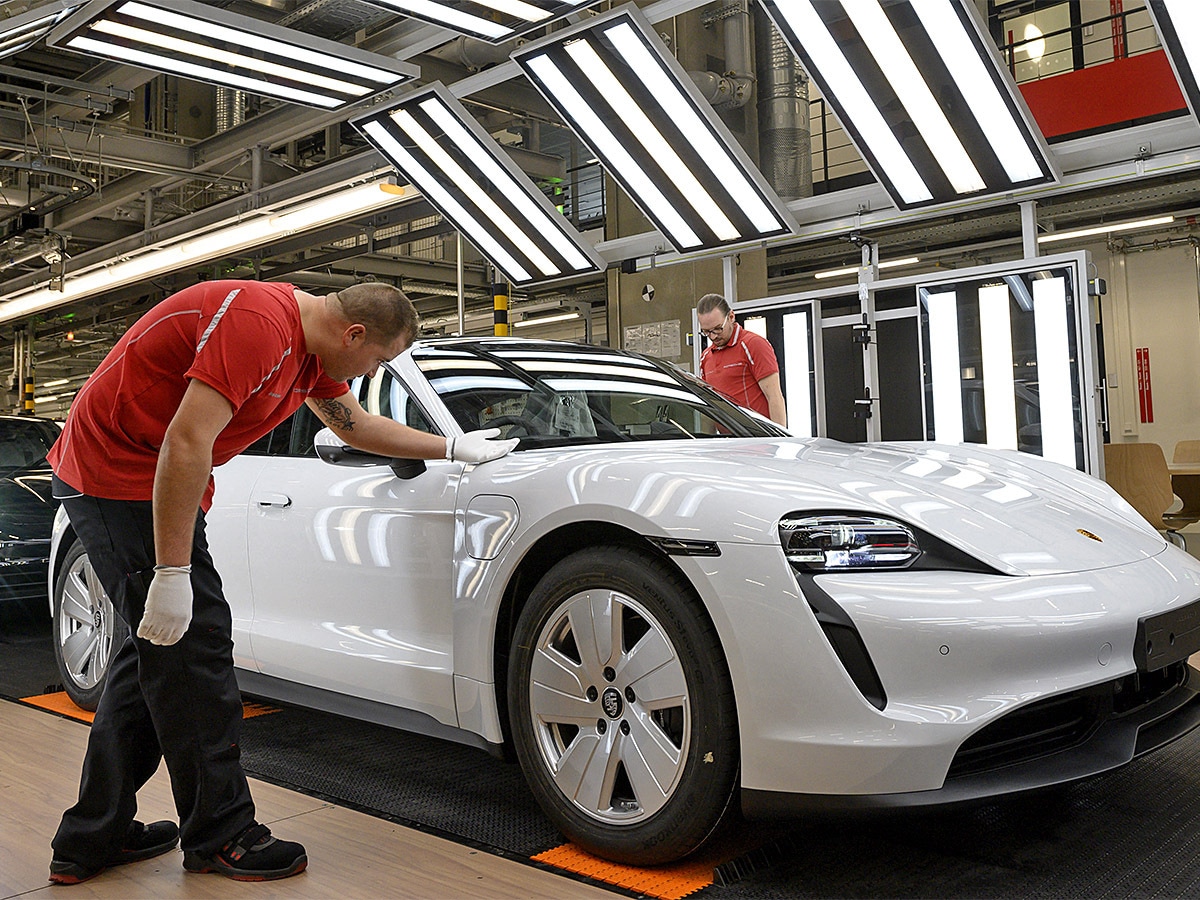While Porsche’s share price has wobbled slightly since its debut on the Frankfurt Stock Exchange two weeks ago, its performance against parent company Volkswagen and future outlook paint a sunny picture for its long-term potential.
Porsche [P911.DE] recently went public and became Europe’s largest IPO since Glencore’s [GLEN] in 2011. Porsche shares debuted on 29 September at €84.00, near the high end of parent company Volkswagen’s [VOW.DE] (VW) expectations. The debut valued the company at €78bn, leading Porsche itself to claim Europe’s largest ever IPO by market capitalisation.
The stock suffered a first-day fall of 1.8%, however, closing the day at €82.50, and looked to be sliding as it closed the first day of its first full week of trading on 3 October at €81.80.
However, the Porsche share price kicked into gear later in the week, and during afternoon trading in Frankfurt on 6 October rose enough for Porsche to overtake VW as Europe’s most valuable carmaker. VW’s share price fell 10.7% on the day of the IPO, and 18.3% to its close on 13 October.
The iShares Electric Vehicles and Driving Technology UCITS ETF [ECAR] holds, as of 13 October, a 1.27% weighting in VW’s non-voting shares and a further 0.27% weighting in its standard shares. As of 13 October, the fund has lost 3.3% since 29 September, during which period the Porsche share price has gained 3.4% and the VW share price has tumbled by 17.7%.
Plans to overtake Tesla in EV production
According to the press release accompanying the IPO, retail investors acquired a total of 7.7% of the shares issued in Porsche. Oversubscription meant that orders above 30 shares were allocated approximately 23% of the total order.
The $9.4bn VW raised in Porsche’s IPO is expected to fund its electric vehicle ambitions.
Chairman of Porsche’s executive board Oliver Blume has set out ambitious targets on this front as well, with the sports car manufacturer aiming for 80% of its new vehicles to be battery-electric vehicles (BEVs) by 2030, as well as a net carbon-neutral value chain over the same time period.
Dominic Tribe, partner and automotive specialist at Vendigital, told AM Online that the IPO’s cash injection would “accelerate VW’s ambitious plan to overtake Tesla as the world’s leading EV manufacturer by 2024, which could cost the company in excess of £50bn.”
Sustainable autonomy
The IPO is expected to give Porsche greater autonomy from VW over the long run. According to its press release on the day of the IPO, its domination agreement and profit and loss transfer agreements with VW will expire at the end of 2022. At that point, the agreements will be replaced with an arms-length industrial cooperation agreement (ICA), “pursuant to which Porchse and VW will govern their future industrial and strategic relationship. Both companies have a common interest: the sustainable and value-creating development of Porsche AG.”
But some onlookers are concerned that for all the fanfare, the deal may lack authentic autonomy. Speaking to AM Daily, Birmingham Business School professor David Bailey said, “It appears that no voting shares will actually go to the public; that bizarrely seems to leave VW’s existing shareholders and unions still in control of Porsche”, adding that “An already labyrinthine governance structure becomes even more complex, especially as Porsche‘s chief executive Oliver Blume also has overall control of the VW Group. That might put some investors off.”
Growing customer base
Laura Hoy, environmental, social and governance (ESG) and equity analyst at Hargreaves Lansdown, said that while Porsche’s model of selling predominantly to dealerships came with risk, there was cause for optimism in the expected growth of Porsche’s target market: high net worth individuals with assets worth in excess of $1m.
“This pool of customers is growing,” she told Capital.com. “This part of the global population is expected to grow at a compound annual rate of 9% through 2026.” In a piece published on Advisorpedia, Hoy wrote that this group is “unlikely to feel much of a sting from cost of living increases.”
In its half-year results published on the day of its IPO, Porsche announced expectations of a 17% to 18% return on sales for the year, with total sales revenue expected to be between €38bn to €39bn. Net cash flow for the automotive segment is expected to see “a significant increase” on the previous year’s total of €3.7bn.
Investor Louis Navellier recommended Porsche’s stock over Tesla’s [TSLA] on his podcast. “Porsche trades at less than a third of the forecasted earnings of Tesla and has bigger profit margins”, thanks to the brand’s luxury status.
Disclaimer Past performance is not a reliable indicator of future results.
CMC Markets is an execution-only service provider. The material (whether or not it states any opinions) is for general information purposes only, and does not take into account your personal circumstances or objectives. Nothing in this material is (or should be considered to be) financial, investment or other advice on which reliance should be placed. No opinion given in the material constitutes a recommendation by CMC Markets or the author that any particular investment, security, transaction or investment strategy is suitable for any specific person.
The material has not been prepared in accordance with legal requirements designed to promote the independence of investment research. Although we are not specifically prevented from dealing before providing this material, we do not seek to take advantage of the material prior to its dissemination.
CMC Markets does not endorse or offer opinion on the trading strategies used by the author. Their trading strategies do not guarantee any return and CMC Markets shall not be held responsible for any loss that you may incur, either directly or indirectly, arising from any investment based on any information contained herein.
*Tax treatment depends on individual circumstances and can change or may differ in a jurisdiction other than the UK.
Continue reading for FREE
- Includes free newsletter updates, unsubscribe anytime. Privacy policy





